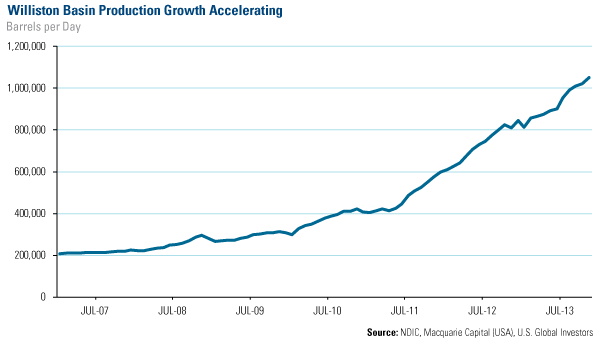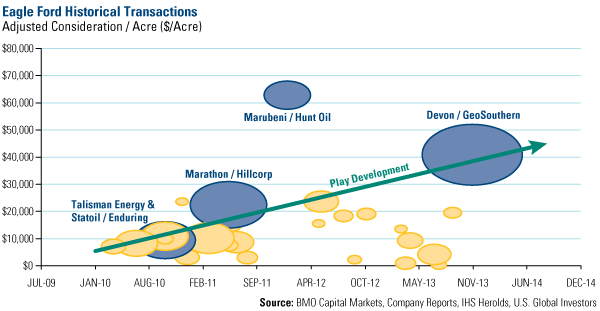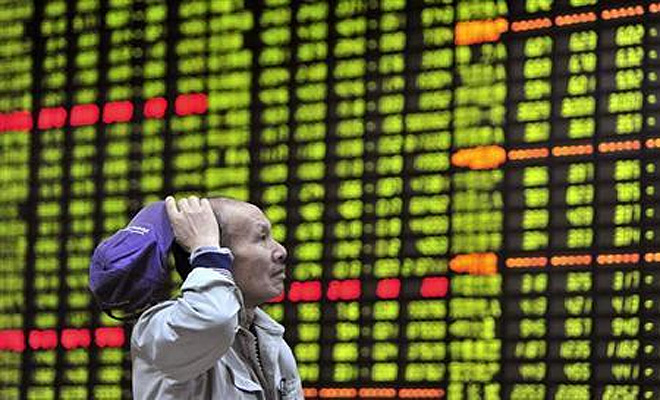Energy and Natural Resources Market Radar (January 27, 2014)
Strengths
- The Brent-WTI spread has narrowed to $10 – a level last seen in mid-December, as adverse weather, bullish demand and stocks International Energy Agency (IEA) data and the start of Transcanada’s Marketlink Pipeline took WTI prices higher this week
- The price of natural gas jumped nearly 20 percent this week, and breeched the $5 level for the first time since 2010 as demand soars and inventory levels fall below normal due to an arctic weather across much of the U.S.
- According to the IEA, U.S. oil demand is outperforming original forecasts as demand grew by 390,000 barrel per day last year. U.S. demand has been supported by the shale oil boom, which has cheapened the nation’s energy supplies. The demand comes on the back of a pickup in industrial activity and increased petrochemical production. The IEA is calling for a pickup in 2014 growth, with the Americas expected to grow by 95,000 barrels a day, and global growth expected to reach 1.4 million barrels a day.
Weaknesses
- Indonesia’ metal ore exports have come to a complete halt, signalling the turmoil in the mining sector following the ban on some ore exports and rise in export taxes, according to trade ministry official.
- The benchmark steel price declined for the second-straight week on falling raw material prices. The CRU weekly price assessment shows U.S. hot rolled coil (HRC) at $675 per short ton, down $2 for the week ending January 22.
- Iron ore prices declined to six-month low on lackluster steel demand and destocking by mills. The spot 62 percent Fe price fell to $123 per ton cost & freight (CFR) China on January 21, the lowest level since July 9, 2013. However, Vale’s CEO said the recent drop in iron ore prices is temporary and the fundamentals of Chinese economy remain solid.
Opportunities
- Hassan Rouhani, the first Iranian leader in a decade to visit Davos for the World Economic Forum, invited oil companies to invest in his country as a nuclear accord with world powers triggers the lifting of some sanctions. Rouhani said his country won’t impede progress toward a final nuclear accord. The interim agreement implemented this week brought Iran about $7 billion in sanctions relief, according to the U.S.
- Canada is increasingly looking to Asia as a key export market. “We’ve clearly identified Asia as a priority market,” Alberta’s Minister of International Relations Cal Dallas said. “We’ve projected they will continue to use more energy and will look to Alberta for that energy.”
- Total’s CEO urged the U.S. to approve the $5.4B Keystone XL pipeline to unplug a bottleneck that’s stalling the development of Canadian oil sands.
Threat
- Europe's high gas prices risk driving away a big share of its energy intensive industries such as cement and steel, unless countries boost shale gas output and trim green subsidies, the IEA’s chief economist said.
- China’s HSBC flash manufacturing PMI declined to 49.6 in January from 50.5 in December, the first monthly contraction in six months. Deutsch Bank believes that the PMI is hit by several ad hoc factors, including "emergency measures" of air pollution control and the government order to stop virtually all holiday-related consumption using public funds.


















